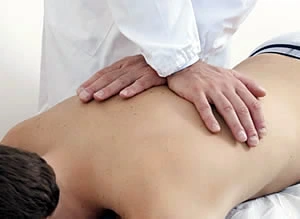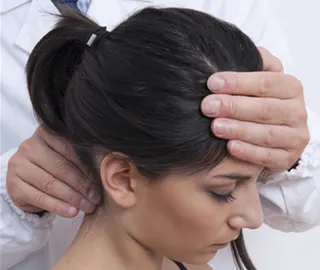Dizziness
Description
Dizziness is one of the most common reasons people visit
doctors, consistently ranking among the top three
complaints in primary care, internal medicine, and
emergency departments [1].

Signs and Symptoms
Presentation of Dizziness includes:
- Feeling lightheaded or faint
- A sense of spinning or vertigo
- Wooziness or fogginess
- Unsteadiness or imbalance
- Feeling disconnected or "off"
- Motion / movement sensitivity
Dizziness may be continuous or intermittent, meaning it can be constant or come and go. Episodes are sometimes brief, lasting only seconds or minutes, while in other cases they may persist for hours or even days. Some individuals suffer from chronic dizziness that continues over a span of weeks, months, or even years.
Dizzy spells can occur spontaneously or be triggered by specific positions, such as tilting the head backward or lying down in bed.

Associated Symptoms
- Fullness or ringing in the ears
- Hearing loss
- Nausea
- Fatigue
- Difficulty concentrating
- Weakness
- Headache or neck pain
Causes
- Side effects of medicine
- Emotional Stress
- Adrenal exhaustion
- Misaligned or “locked” cranial bones
- Ear or eye disturbances
- History of trauma in which the head and neck was either directly or indirectly involved
- Orthostatic hypotension (blood pressure drops upon rising from a lying down or seated position instead of rising)
- Hypoglycemia
- Hyperinsulinism
- Alcohol-related
- Hyperventilation
- Acidosis
- Fatigue
Chiropractic / Applied Kinesiology Approach to Dizziness
Dizziness can mean different things to different people—lightheadedness, unsteadiness, or the sensation of spinning. Regardless of the classification, the Chiropractic approach is uniquely effective because it evaluates and treats the whole person, not just isolated symptoms or body parts.
When muscle imbalances or vertebral misalignments are present—especially in the cervical spine—Dr. Morrison employs highly effective manual
techniques to realign the spine and restore proper nerve function. As spinal mechanics improve, so does proprioception—leading to a greater sense of
balance and body awareness.
In cases where dizziness is more situational or motion-based, the root cause is often related to adrenal stress or metabolic imbalances. Here, the
combination of Applied Kinesiology treatments and targeted nutritional support is often key to resolving symptoms at their source, offering long-term
relief.
[1] Kroenke, K., & Mangelsdorff, A. D. (1989). Common symptoms in
ambulatory care: Incidence, evaluation, therapy, and outcome. The American Journal of Medicine, 86(3), 262–266.



